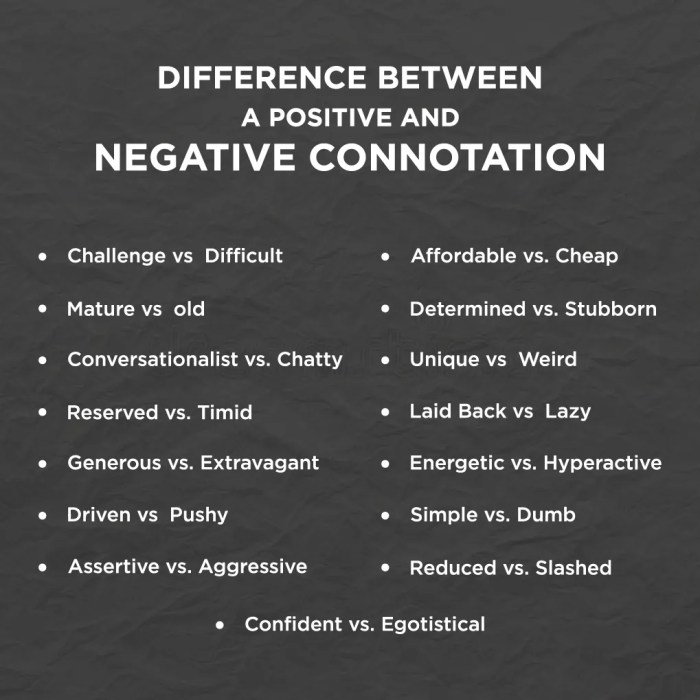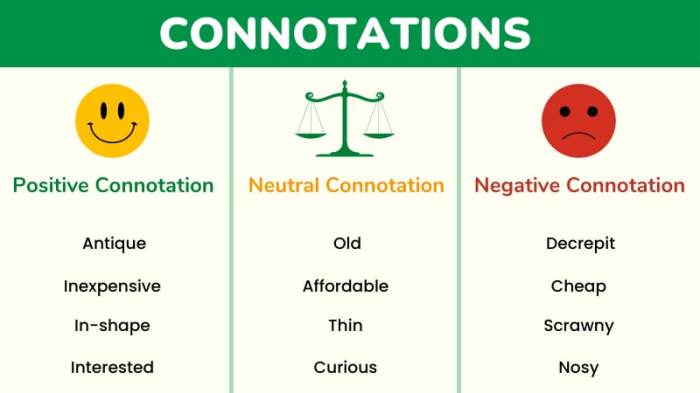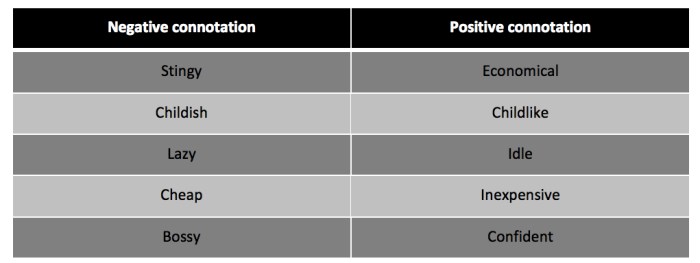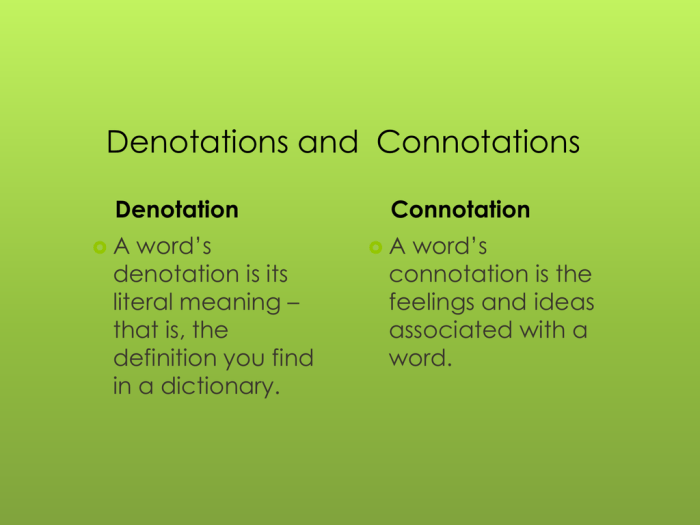Which sentence uses words with negative connotations – In the realm of sentence analysis, identifying sentences that employ words with negative connotations is a crucial skill. Understanding the impact of negative connotations on sentence meaning and tone is essential for effective writing.
This comprehensive guide delves into the definition of negative connotations, techniques for identifying sentences that use them, and strategies for employing them effectively in writing.
Negative Connotations in Sentence Analysis

Negative connotations refer to the negative associations or meanings implied by certain words or phrases. These words often convey a sense of disapproval, dislike, or negativity. Examples include “lazy,” “arrogant,” “stupid,” and “useless.”
Identifying Sentences with Negative Connotations, Which sentence uses words with negative connotations
To identify sentences with negative connotations, consider the following techniques:
-
-*Examine the words used
Pay attention to words that carry inherently negative meanings, such as those listed above.
-*Consider the context
The context of a sentence can influence the connotations of individual words. For example, the phrase “lazy dog” has a negative connotation, while “lazy afternoon” does not.
-*Analyze sentence structure
Sentences that use negative words in conjunction with intensifiers (e.g., “very,” “extremely”) or negative modifiers (e.g., “not,” “never”) often convey negative connotations.
Impact of Negative Connotations on Sentence Meaning
Negative connotations can significantly alter the overall meaning and tone of a sentence. They can create a sense of disapproval, criticism, or negativity. For instance, the sentence “The student was lazy” implies that the student is not hardworking and lacks effort.In
formal writing, negative connotations should be used cautiously. They can make a sentence sound harsh or judgmental, and may not be appropriate in certain contexts.
Strategies for Using Negative Connotations Effectively
While negative connotations should be used judiciously, they can be effective in certain writing styles. For example, they can be used to create a sense of irony, emphasize a point, or convey a strong emotion.
| Positive Connotations | Negative Connotations |
|---|---|
| Hardworking | Lazy |
| Confident | Arrogant |
| Intelligent | Stupid |
| Helpful | Useless |
Tips for Using Negative Connotations Effectively:
- Use negative connotations sparingly and purposefully.
- Consider the context and audience when using negative words.
- Balance negative connotations with positive ones to create a nuanced and balanced perspective.
- Avoid using negative connotations in a way that is unnecessarily harsh or judgmental.
Quick FAQs: Which Sentence Uses Words With Negative Connotations
What are negative connotations?
Negative connotations refer to the negative or unfavorable associations that certain words or phrases carry.
How can I identify sentences with negative connotations?
Look for words or phrases that typically carry negative meanings, consider the context and sentence structure, and analyze the overall tone of the sentence.
Why is it important to be aware of negative connotations?
Negative connotations can significantly alter the meaning and tone of a sentence, and using them effectively can enhance writing style and convey specific messages.


